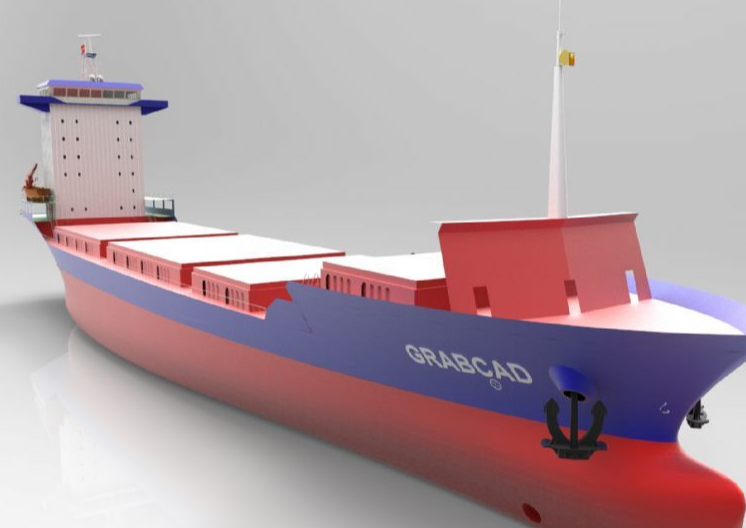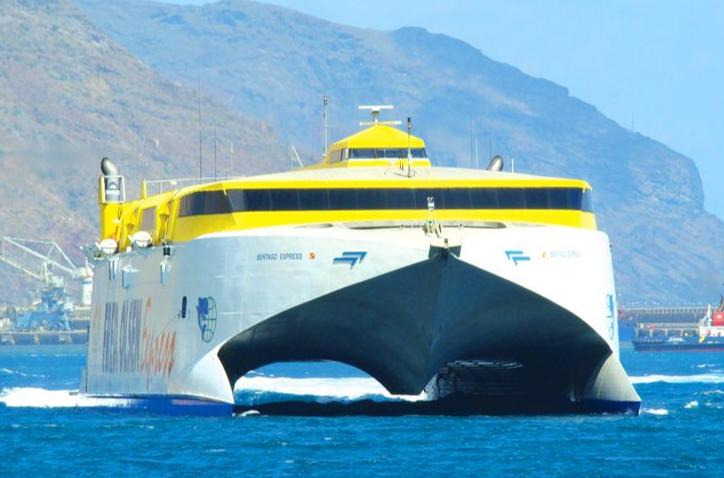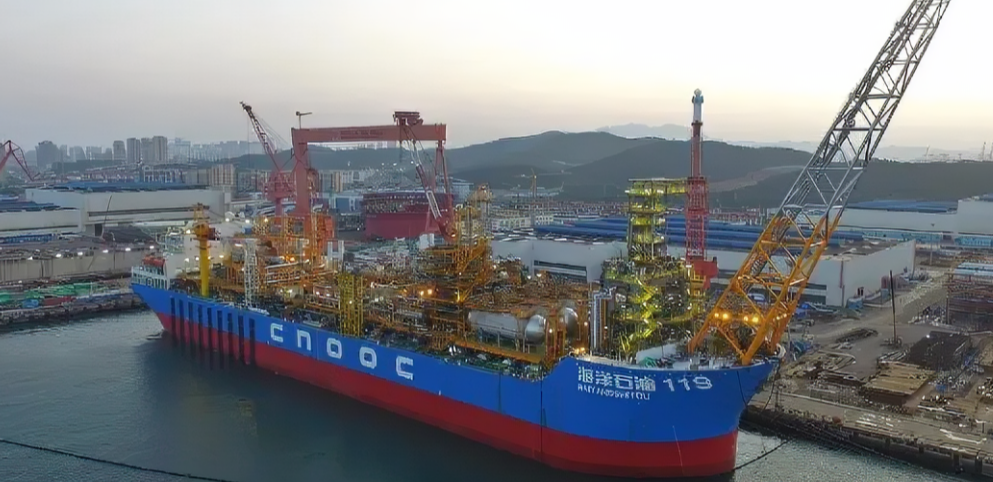Ship sales series of used ship imports
1. Import procedures of foreign used ships
Limited by the provisions of Article 4 of the Maritime Law, foreign ships cannot directly operate the transportation between China's coastal and inland ports (hereinafter referred to as "domestic waterway transportation"). Therefore, the freight of domestic water transportation mainly depends on the supply and demand ratio of domestic shipping capacity and cargo volume, and there is no direct correlation with the international shipping market. However, domestic shipping enterprises can convert ships from foreign nationals to Chinese nationals by purchasing second-hand ships, so as to achieve the purpose of deploying ships in the domestic waterway transport market. As for the transaction process between the buyer and the seller in the second-hand ship sale, we have introduced the first article in the Ship sale series, and we will not repeat it here. The following mainly introduces the matters that domestic buyers need to pay attention to when handling import procedures for foreign ships.
1. Qualification of the company
Although China has no laws and regulations or departmental rules directly on the subject qualification of imported second-hand vessels to make specific provisions, but according to the "Domestic waterway transport management provisions", "Domestic waterway transport management Regulations", "old transport vessel management provisions" and "ship registration Regulations" in the relevant provisions, the subject of imported second-hand vessels should hold the "domestic waterway transport business license". This license is a necessary administrative license to carry out waterway transportation business in our country. In terms of how to obtain the license, Article 5 of the Provisions on the Management of Domestic Waterway Transportation and Article 6 of the Regulations on the Management of Domestic Waterway Transportation have specified specific conditions, including requirements for the company's legal personality, transportation capacity, business plan, professional personnel, and safety management system.
In addition, the approval of the import of used vessels by domestic companies with foreign shareholding or equity participation also needs to comply with the provisions of the "Interim Provisions on Domestic Investment of Foreign-Invested Enterprises" and the "Guidance Catalogue of Foreign Investment Industries", which are detailed below.

2. Request capacity
The capacity of the domestic waterway transport market is regulated by the State as a whole, and the import of second-hand ships belongs to the case of new capacity, and it is necessary to apply to the competent authorities. According to the provisions of Article 12 of the Provisions on the Management of Old Transport Vessels and Article 17 and 18 of the Rules for the Implementation of the Regulations on the Management of Waterway Transport, the import subject, according to the nature of its enterprise and the scope of operation, shall submit an application for new shipping capacity to the local transport authority and its authorized shipping administration department (local maritime safety Administration), and report to the Ministry of Communications for approval. When applying, in addition to providing the application form, other materials should also be provided according to the requirements of the local competent authorities, generally including: feasibility study report, copy of the water transport license, proof of the source of stable freight business, proof of the organization and personnel suitable for the business scope.
3. Ship survey and old ship technical assessment
According to the Regulations on the Administration of Old Transport Vessels, the Notice on Issuing the Administrative Procedures for the Import of Traffic Mechanical and Electrical Products by the General Office of the Ministry of Communications, the Provisions on Matters related to the Import of Ships by the Ministry of Foreign Trade and Economic Cooperation, and the Letter on the use of the Technical Assessment Form for the Import of Old Ships by the Maritime Safety Administration, for the import of second-hand ships to Chinese vessels operating waterway transport, Before signing the purchase contract or binding agreement, the importer shall apply to the China Maritime Safety Administration for import inspection and evaluation of used ships. In practice, the Maritime Safety Administration entrusts the Maritime China Classification Society (" CCS ") to conduct an inspection of the imported second-hand ships, and initially assess the technical status of the ships, especially the stability of the ships, structural conditions and important equipment configuration. After the assessment is passed, CCS will submit the inspection report to the Maritime Bureau, which will issue the Technical Assessment of the old ship accordingly.
4. Import license of mechanical and electrical products
According to the Ministry of Commerce, General Administration of Customs, State General Administration of Quality Supervision, Inspection and Quarantine "Administrative Measures for the Import of Key Used mechanical and electrical products", Ministry of Commerce, General Administration of Customs
According to the Measures for the Implementation of Automatic Licensing for Import of Mechanical and Electrical Products, the Measures for the Administration of Import of Mechanical and Electrical Products of the Ministry of Commerce, the Provisions of the Ministry of Foreign Trade and Economic Cooperation (now the Ministry of Commerce) on Matters related to the Import of Ships and the Import Catalogue of Key Used Mechanical and Electrical Products, ships applying for import shall also obtain the Import License for Mechanical and Electrical Products issued by the Ministry of Commerce. In particular, the applicant shall submit the application for import report, import application form for mechanical and electrical products, transport capacity approval, technical assessment of old ships and other materials to the competent foreign economic and trade authorities in the region to be transferred to the Ministry of Commerce for review.

5. Customs formalities
After obtaining the above permits and paying the purchase price according to the second-hand boat sale contract, customs formalities should also be completed. To this end, the documents to be submitted to the Customs include second-hand ship sales contract, invoice, used ship import technical assessment, import license of mechanical and electrical products, ship specifications, etc. It is subject to a value-added tax of 17% and a tariff ranging from 5% to 14% depending on the type of ship and the nationality of the ship. The specific tariff rate depends on whether MFN rates are available and the type of vessel. For oil product carriers, for example, the MFN rate is 9% for DWT or less than 100,000 tons. Based on this calculation, the total tax is 27.53% (9%+ (1+9%)*17%).
6. Ship registration
According to China's Regulations on Ship Registration, the owner of a ship should register the ownership of the ship at the port of registration (maritime Safety Administration). At the time of registration, documents sufficient to prove its legal identity shall be submitted to the ship registration authority of the port of registration for examination, and the body and copy of the relevant technical data of the ship and the documents certifying the acquisition of the ownership of the ship, such as the invoice for the purchase of the ship or the contract of sale and handover of the ship, the certificate of tax payment, and the certificate of cancellation of the registration of the ownership of the ship issued by the ship registration authority of the port of registration of the ship shall be provided.
7. Apply for Ship Business Transport Certificate
According to the relevant provisions of the "Regulations on the Administration of Domestic Waterway Transport" and the "Regulations on the Administration of Domestic Waterway Transport", waterway transport operators put new vessels into operation, The ship operation certificate shall be obtained from the competent department of transport under The State Council or the department responsible for the administration of water transport under the local people's government at or above the level of a districted city or its authorized unit (maritime Safety Administration) on the basis of the water transport business license, ship registration certificate and inspection certificate. General application for "ship business transport certificate" requires ship ownership, nationality, minimum manning certificate copy, company business license, water transport license copy, ship inspection certificate, DOC compliance certificate copy, safety management certificate and other materials.
The above are the main administrative approval procedures, and the technical and commercial arrangements, such as classification societies and insurance, have been covered in the "Ship sales Series" article, and will not be repeated.
Special provisions for foreign-funded enterprises
Whether it is a wholly owned company registered by a foreign entity in China, a foreign-funded company operating jointly with a Chinese enterprise, or a registered subsidiary of a foreign-funded company, although legally speaking, it is a "domestic enterprise", but according to the provisions of Article 3, paragraph 2, of the Interim Provisions on Domestic Investment of Foreign-Funded Enterprises, "The domestic investment of foreign-invested enterprises shall be subject to the provisions of the Interim Provisions on the Direction of Foreign Investment and the Catalogue for the Guidance of Foreign Investment Industries." In the 2017 "Foreign Investment Industry Guidance Catalogue", domestic waterway transport belongs to the restricted category, so the actual controller of the enterprise engaged in domestic waterway transport needs to be domestic capital, that is, more than 50% of the company's shares should be controlled by domestic capital. In addition, although foreign-invested enterprises established in the free trade zone are not subject to the above restrictions on domestic ownership, they can only operate international maritime business, but cannot operate domestic waterway transport business.
In addition, according to the provisions of Article 34 and Article 35 of the Provisions on the Administration of Domestic Waterway Transport, second-hand ship importers with foreign capital background in applying for waterway transport qualifications, in addition to meeting the above qualifications, should also meet the following conditions: (a) within the scope of the proposed business, domestic waterway transport operators can not meet the needs; (2) It shall have good performance and operational records in the operation of waterway transport business. Local transport authorities may, according to the actual situation of domestic waterway transport, decide whether to allow used ship importers with foreign capital background to operate domestic waterway transport.

The above two conditions will greatly increase the threshold for ordinary foreign-invested enterprises to operate water transport business in the country, and it can even be said that foreign-funded enterprises want to obtain domestic water transport qualifications is very difficult. As far as we know, several existing foreign-invested enterprises engaged in domestic waterway transportation without exception have chosen to jointly establish the structure of domestic companies controlled by state-owned enterprises, and the establishment time is earlier than 2014 (the Regulations on the Management of Domestic Waterway Transportation was amended in 2014).
3. Bareboat charter of foreign ships for domestic waterway transportation
In theory, importing used ships is not the only way to increase capacity. Domestic enterprises can choose to operate domestic waterway transport by bareboat charter (" bareboat charter ") of foreign vessels. Article 8 of the Regulations on the Management of Old Transport Vessels stipulates:
"When a ship of a foreign nationality is purchased or a ship of a foreign nationality is leased under the bareboat charter conditions to engage in waterway transport, the ship must meet the age requirements for the purchase or bareboat charter of a ship of a foreign nationality as stipulated in the Appendix to these Regulations, and its hull, major mechanical and electrical equipment, safety and anti-pollution equipment, etc., shall comply with the statutory technical rules for vessel inspection."
Article 28 of the Ship Registration Regulations provides that:
"Where a ship is chartered from abroad on bareboat terms, the charterer shall determine the port of registration in accordance with the provisions of Article 9 of these Regulations, and apply to the ship registration authority for bareboat charter registration before the commencement of the charter with the following documents:

(1) Original and duplicate of bareboat charter contract;
(2) valid ship technical certificate issued by the statutory ship inspection authority;
(3) A certificate of suspension or cancellation of the nationality of the ship issued by the ship registration authority at the port of original registration, or a certificate of suspension or cancellation of the nationality of the ship immediately upon re-registration.
Where the provisions of these Regulations are complied with after examination, the ship registration authority shall issue a bareboat charter registration certificate, and shall issue a provisional ship nationality certificate in accordance with the provisions of Article 17 of these Regulations, indicating the original country of registration in the ship register."
However, in practice, in addition to registering with the Maritime Bureau in accordance with the above requirements and passing the inspection of the China Classification Society, it is still necessary to obtain the permission to increase the capacity and apply for the ship business Transport Certificate for the chartered ship. As far as we know, except in rare cases, such as the need to charter a special engineering ship from abroad for a large national port project, ordinary commercial operations, it is almost impossible to obtain the above permission.
In addition, bareboat charter vessels also need to go through the import formalities at the customs. The duty and VAT rates are the same as those applicable when importing used vessels. In addition to customs duties and value-added tax, when paying rent to overseas entities, the lessor's enterprise income tax shall be paid on behalf of the lessor in accordance with the provisions of Articles 3 and 4 of the Enterprise Income Tax Law. The current tax rate is 10%.
- ABB
- General Electric
- EMERSON
- Honeywell
- HIMA
- ALSTOM
- Rolls-Royce
- MOTOROLA
- Rockwell
- Siemens
- Woodward
- YOKOGAWA
- FOXBORO
- KOLLMORGEN
- MOOG
- KB
- YAMAHA
- BENDER
- TEKTRONIX
- Westinghouse
- AMAT
- AB
- XYCOM
- Yaskawa
- B&R
- Schneider
- Kongsberg
- NI
- WATLOW
- ProSoft
- SEW
- ADVANCED
- Reliance
- TRICONEX
- METSO
- MAN
- Advantest
- STUDER
- KONGSBERG
- DANAHER MOTION
- Bently
- Galil
- EATON
- MOLEX
- DEIF
- B&W
- ZYGO
- Aerotech
- DANFOSS
- Beijer
- Moxa
- Rexroth
- Johnson
- WAGO
- TOSHIBA
- BMCM
- SMC
- HITACHI
- HIRSCHMANN
- Application field
- XP POWER
- CTI
- TRICON
- STOBER
- Thinklogical
- Horner Automation
- Meggitt
- Fanuc
- Baldor
- SHINKAWA
- Other Brands




































































































































